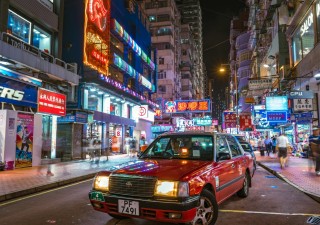Tips for brand owners to navigate India’s IP landscape
06 July 2022

To attract investment from companies and IP holders to manufacture and distribute their products in India and to assure brand owners that their rights are safeguarded, the Indian government has taken several steps to streamline enforcement procedures. The setting up of commercial courts to deal with IP disputes and, recently, establishing the IP Division at the Delhi High Court, are positive steps to expedite resolution and cut down on litigation costs.
Addressing brand infringement issues
As the appetite for branded goods among the burgeoning Indian middle-class increases, the availability of infringing, counterfeit and lookalike products is also on the rise. Brand owners are grappling with various brand protection issues – some straightforward, some complex. For ease, they have been categorized as follows:
-
Clear copying of brands – direct infringement with identical or similar marks used for the same goods;
-
Lookalike products – the brand is not copied, but the color scheme, layout, and essential elements of product packaging are;
-
Use of a well-known mark on different goods; and
-
Use of a brand name as a corporate or trading name.
In the digital space, the common issues faced by brand owners are
-
Sales of counterfeit and infringing goods through e-commerce portals, social commerce, trade portals, and auction sites;
-
The creation of false websites that include the use of domain names, trade names, color schemes/layout, and logos of well-known brands to run fraudulent schemes for collecting money from gullible consumers:
-
Meta-tagging by competitors and counterfeiters to divert internet traffic to boost sales;
-
Use of brand names and other keywords by counterfeiters to siphon organic search traffic; and
-
The unauthorized use of digital images of the packaging and other proprietary material online to attract consumers.
Remedies
In cases of straightforward copying of a brand where goods or services are offered online or available through brick-and-mortar stores, brand owners can seek civil or criminal remedies – both of which have pros and cons. A strategic analysis of the scale of the problem is advisable to workout a targeted approach and tailored solutions.
In cases of rampant infringement or counterfeiting that covers a wide area, criminal raids conducted by the police may be the preferred option. In instances of a single manufacturer engaged in infringing activities, civil action seeking an injunction followed by search and seizure through a court-appointed commissioner is recommended.
Cases involving deceptive similarity of a mark and packaging civil suits for trademark infringement and passing off are a better route, as the law enforcement agencies responsible for criminal matters are less likely to be conversant with the nuances of IP law.
One of the challenges in working with Indian courts has been the frequent delays and time it takes to conclude a case. The government has addressed this issue by establishing commercial courts to deal with IP disputes, and more recently, the Delhi High Court has set up its IP Division to have specialist courts/judges hear IP cases.
Commercial courts
Commercial courts were established in January 2016 with the explicit intention of expediting proceedings to provide a speedy resolution for rights holders. IP disputes are classified as Commercial disputes. Therefore suits or claims with a value exceeding Rs300,000 (US$4,500) can be filed before the commercial courts. A further amendment entails mandatory pre-institution mediation for suits that do not contemplate urgent interim relief.
To expedite proceedings and swift justice, the act requires the filing of all relevant documents at the time of filing the suit itself or at the time of filing the written statement (reply by the defendant). The act also sets a 120-day limit for filing a written statement, beyond which the right to file such a statement is closed and the court will not accept or record a delayed submission.
Procedures have also been laid down for the discovery and inspection of documents and the admission and denial of documents to reduce trial time.
To speed up the examination of parties and recordal of evidence, the act provides that court-appointed commissioners may conduct trials, so that the proceedings are completed in a time-bound manner.
The act also includes a provision for seeking summary judgments. Any party can argue that the other side does not have a valid case and seek a summary judgment without a drawn-out trial.
Criminal action
In recent years several states have established specialized departments, including the IP Cell within the police, which combats the sale and distribution of counterfeit goods. Police personnel specially trained in IP matters have made such raids more systematic and streamlined and more effective. Criminal raids leading to the arrest of infringers deliver a strong message to the market. Nevertheless, initiating criminal action through the police brings several challenges:
-
Information leakage resulting in the removal of the infringing or counterfeit goods;
-
Slow prosecution at the magistrate court’s due to the backlog of cases, with no special preference given to IP cases;
-
Police personnel not trained to tackle cybercrime or to track online sales of counterfeit goods; and
-
Limited priority is given to IP cases due to the police’s natural preoccupation with crimes against human life and property.
Notwithstanding these challenges, a criminal action is a good option if a brand owner’s objective in conducting raids is to seize the goods and create a stir in the market to deter other traders.
Online enforcement
The past five years have seen a dramatic rise in internet penetration in India. It is estimated that India already has 650 million internet users and is well on the way to reaching a billion users by 2025. The reach of the internet and the ease with which it allows counterfeit goods to be displayed and accessed by consumers throughout the country requires rapid action.
The debate on the role and liability of intermediaries has intensified, given that enforcement online is notoriously difficult, as infringers can conceal their identity through the provision of incomplete information or because they are in a different country. Proponents of free speech argue that regulation of the internet by holding intermediaries liable for users’ online activity is a form of censorship by proxy that imperils free expression and innovation. At the same time, brand owners argue that e-commerce portals must have stringent due diligence requirements to keep online markets free of counterfeit goods. In India, the situation is even more complex as the government’s investment policy does not allow for foreign direct investment in multi-brand retail. Thus, most e-commerce players (e.g., Amazon, Flipkart and Snapdeal) run ‘marketplace’ models, offering retailers space to sell their wares and acting as intermediaries for all goods offered on a portal.
Therefore, they are able to invoke safe harbour provisions under the Information Technology Act to avoid liability for selling counterfeit goods. However, they must take down the infringing or counterfeit products on the notification. Brand owners have started to work closely with major e-tailers to keep the online space free from counterfeits and infringement. Further, many e-tailers have launched programmes to create a safe online market space.
With a population of more than 1 billion – 65 percent of which is under 35 – India offers exciting opportunities to brand owners looking to invest. It also offers a great many challenges.
Top tips for tackling online brand infringement
Strengthen your IP portfolio: obtain statutory protection for your brands and regularly audit your portfolio.
Register with popular social media sites such as Facebook, LinkedIn and Twitter, creating dedicated pages and user names for your brands to preclude others from doing so.
Register key domain names and establish a clear policy on domain name protection (including generic top-level domains) and third-party use of similar domain names.
Establish a monitoring program to keep tabs on online misuse of your IP rights.
Establish a cease and desist notice program to safeguard your brands and intellectual property, supported by rigorous follow-up.
Avail of the takedown procedures established by ISPs, websites, and social media sites to remove infringing content.
Conduct market and online investigations following leads presented by your monitoring programme to take appropriate action against habitual or key infringers from time to time.









